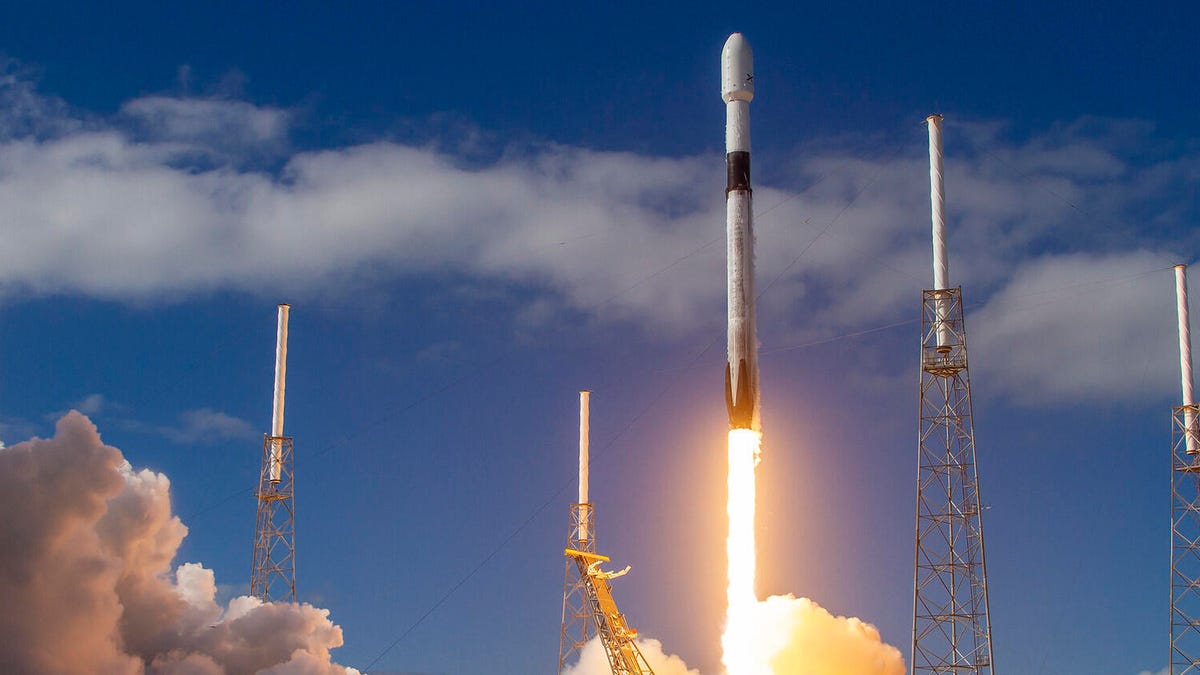Elon Musk says Starlink satellite broadband to start beta testing this year
SpaceX now has more than 400 flying routers in orbit, with plans to more than triple that number in the coming months.

The Falcon 9 launch in November 2019 carried 60 Starlink satellites.
Broadband is in higher demand as much of the world spends more time at home due to the coronavirus pandemic, and Elon Musk's SpaceX is scrambling to provide more access.
This week the company launched another batch of 60 satellites to bring the total size of its growing Starlink broadband constellation to more than 400. While it has the go-ahead to launch more than 12,000 satellites in the coming years, Musk said Wednesday that a "private beta" test of the service will begin in about three months, followed by a public beta about three months later for testers at northern latitudes.
In response to a Twitter user, Musk said Germany qualifies as far enough north, which could mean that much of northern Europe, Canada and the northernmost parts of the US may be eligible to try the service.
Starlink will deliver high speed broadband internet to locations where access has been unreliable, expensive, or completely unavailable
— SpaceX (@SpaceX) April 22, 2020
International filings show that SpaceX might eventually grow the constellation to over 40,000 satellites in pursuit of its goal to make affordabe, low-latency broadband available almost anywhere on the planet.
The plan has its detractors, though: most notably scientists who worry about the impact that such unprecedented numbers of satellites could have on astronomical observations.
Musk has promised to address scientists' concerns, and for now launches are continuing. Another batch of 60 satellites is set to blast off sometime in May.

